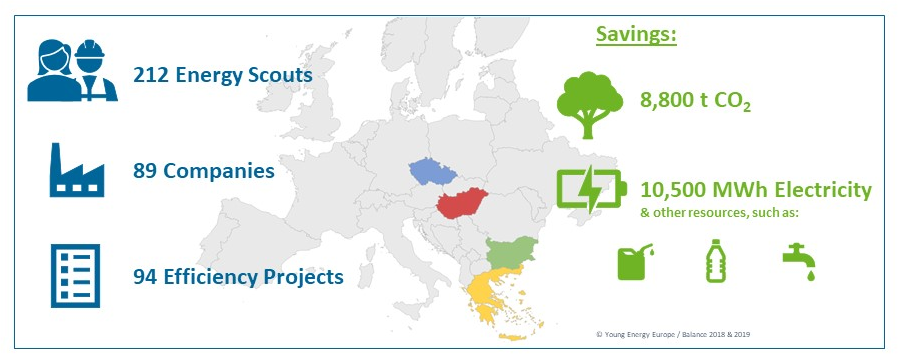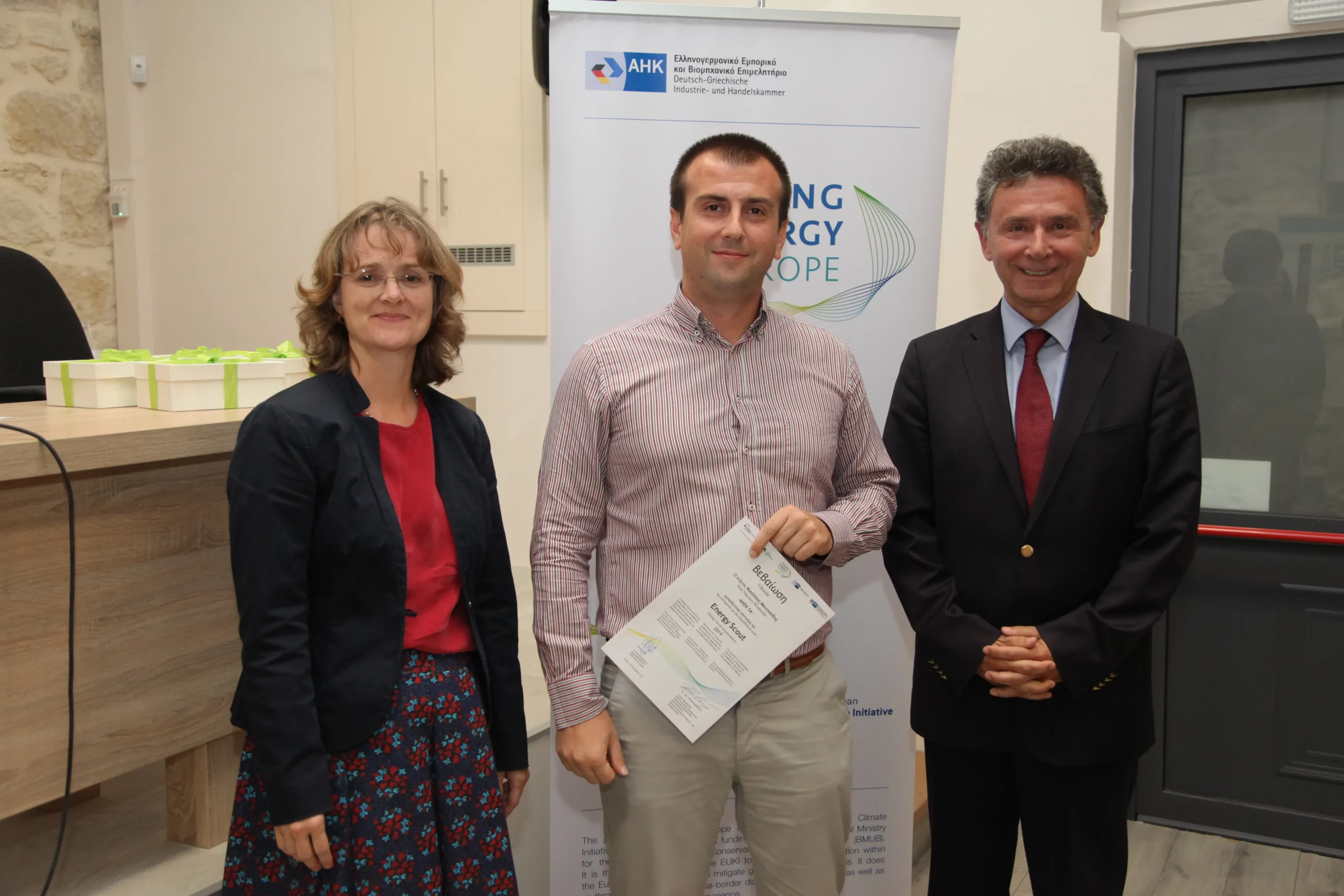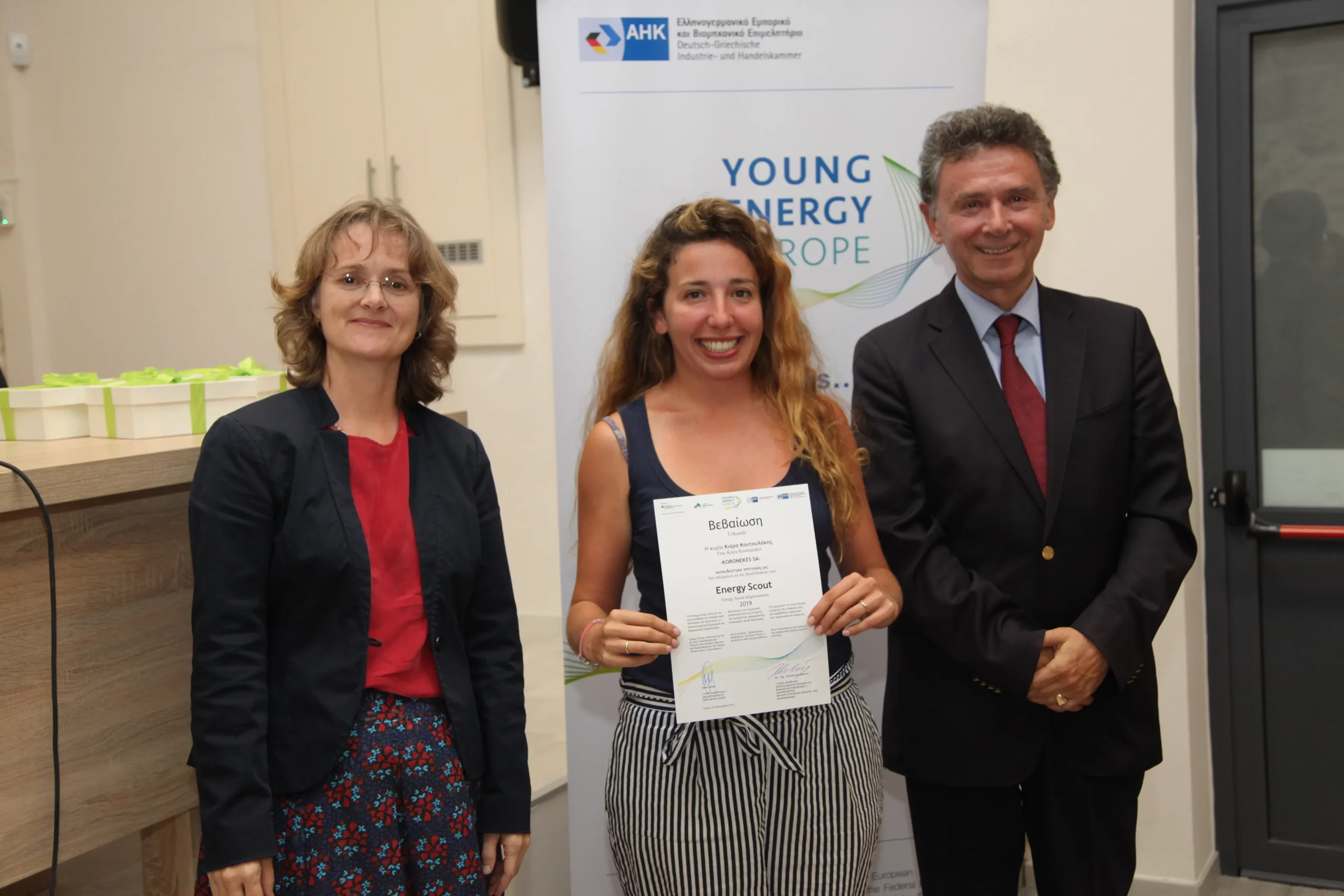The practical projects reduce emissions on average by 94 t CO2
The sustainable results of Young Energy Europe are the practical projects of the Energy Scouts, which contribute to lower resource consumption and therefore to the reduction of greenhouse gas emissions. The high implementation rate of the projects in the companies prove their practical relevance.

So far, the Energy Scouts designed 94 efficiency projects with considerable potential for savings, most of them in the areas of compressed air and lighting but the topics of mobility, resource efficiency and water consumption also play a significant role. The projects of the first two years of European Energy Scouts showed a possible reduction of greenhouse gas emissions of about 8,800 t CO2 per year. This represents potential savings of more than 10,000 MWh of electricity and considerable quantities of natural gas, heating oil and fuels, but also water, paper, batteries and plastics, which the companies now use to a lesser extent. Some projects started as pilot projects in individual branches or subsidiaries and can later be extended to other locations in order to broaden the scale of the expected savings.
More online trainings in the future
In 2020, Energy Scouts face additional challenges due to the corona crisis. Since March, many companies in the four countries have shut down and some have had to reduce personnel. Some of the Chambers of Commerce and Industry (CCI) have moved the training sessions to virtual rooms, but not everything can be done from the home office. For example, the scouts can only carry out energy consumption measurements when the companies are in actual operation again. The first positive signals in this regard are coming from Hungary and the Czech Republic.
In the future, the qualification as Energy Scout will be further optimized – from locally flexible webinars to individual advice by lecturers for separate project teams. With the Best Practices of outstanding projects and the increasing networking of the scouts, digital tools are already available to help ensure the future success of Young Energy Europe.



